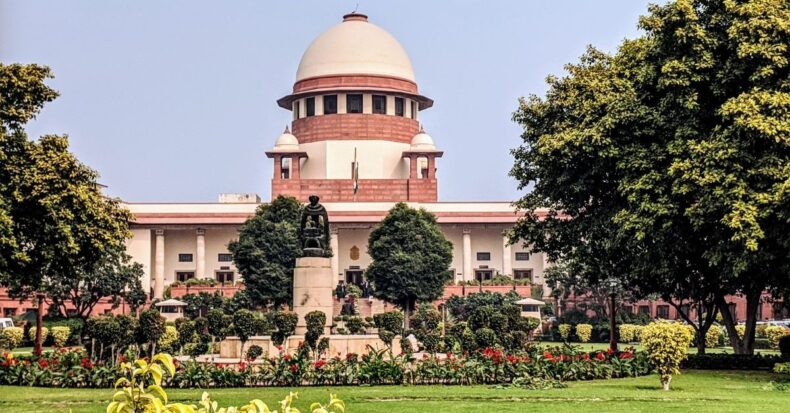
Sedition law in India again made headlines when the Supreme Court of India agreed to listen to the petitions challenging the colonial law.
While Union Government is emphasizing the fact that the sedition law in India is important to maintain the sovereignty and integrity of the nation. Supreme Court on Tuesday advised Union Government to consider keeping the sedition law on hold as long as it is under review. The bench led by Chief Justice NV Ramana also asked the government to give directives to the states about the same.
Sedition law is often criticized for curtailing the fundamental right of citizens especially freedom of speech and expression. The state is also accused of misusing this law in order to arrest members of the opposition, activists, and even students recently. According to critics, any sort of dissent may trigger a punishment under this law which can go up to life imprisonment.
Thomas Babington Macaulay, a British historian, and politician created the punitive statute on sedition in 1837.
According to Section 124A of the Indian Penal Code (IPC), “whoever, by words, either spoken or written, or by signs, or by visible representation, or otherwise, brings or attempts to bring into hatred or contempt, or excites or attempts to excite disaffection towards, the Government established by law” in India, faces a penalty of imprisonment, fine, or both.
Upheld Sedition in 1962:
In 1962, the same issue went to the apex court in Kedar Nath Singh vs the State of Bihar. Two high courts Punjab and Allahabad struck down the sedition law in the 1950s for being a violation of free speech. The five-judge bench of the Supreme Court took the matter and upheld the constitutionality of sedition but restricted its application to only those acts that are likely to incite “public disorder”.
What is Government’s Stand?
The Centre defended the penal statute on sedition (Section 124A of the IPC) before the Supreme Court, claiming that the highest court’s 1962 ruling upholding its constitutionality was settled and had survived the test of time. It did not require a larger bench’s intervention. Incidents of its misuse cannot be used to justify its reconsideration.
The Solicitor General Tushar Mehta later stated that the Centre does not participate in the filing of criminal cases, but that states do. Mr. Mehta further stated that constitutional courts exist for the purpose of redressing legal errors.
” there was no need for any reference and that Kedar Nath Singh’s judgment is a good law. “
Attorney General KK Venugopal
The government also filed an affidavit that Prime Minister Narendra Modi is adamant that the baggage of colonial-era laws that have outlived their usefulness must be removed during the ‘Azadi Ka Amrit Mahotsav’ period. In the same spirit, the Indian government has repealed nearly 1,500 old legislations since 2014-15.
The Chief Justice initially praised the government’s position and quoted a paragraph from its affidavit concerning the Prime Minister’s vow to repeal laws that smell like colonialism. “We respect the government’s position and will work with you”. “However, we must balance the interests of those who are incarcerated. How will you safeguard them?” he asked the Solicitor General.
The government decides to review sedition:
On Tuesday the government finally agreed to take the sedition law under review and re-examine its relevance. The bench was asked to postpone the hearing on the petitions until the government made a final judgment. The petitioners objected to this plea, arguing that further arrests under the law should be stopped.
The government responding to this request of ‘holding the arrest’ again try to turn the table on the states by claiming that it is actually stated that use the law. The solicitor general also mentioned that it is difficult to predict the kind of offenses that will take place in the future, holding arrests under the law seems to be unprecedented.
The judges didn’t seem to be convinced by the arguments and asked the government to file its response by Wednesday if the government wanted them to pass an order.
Read More : UN Human Rights Office Hails SC Order on Sedition Law.













